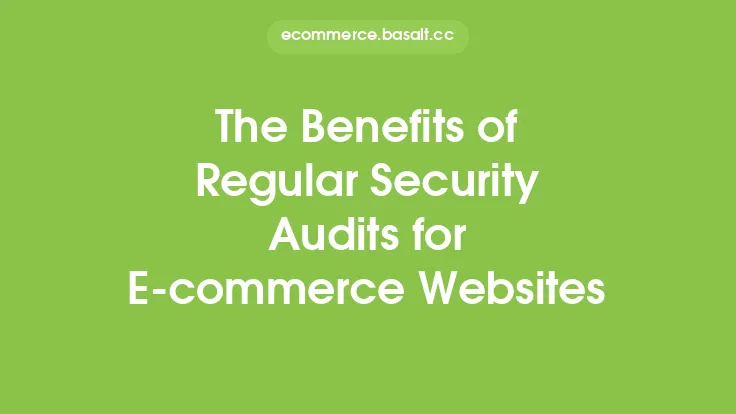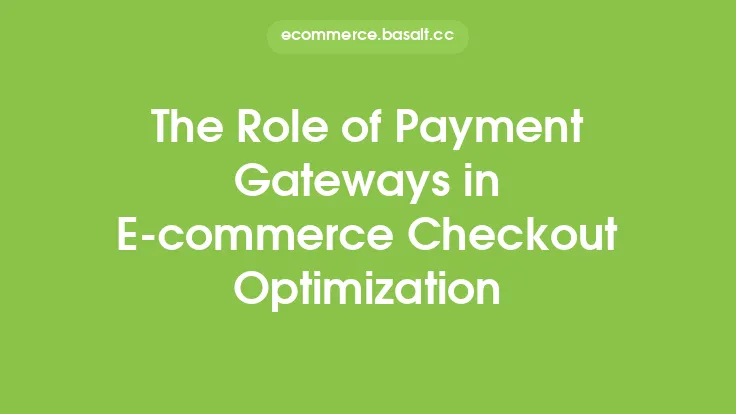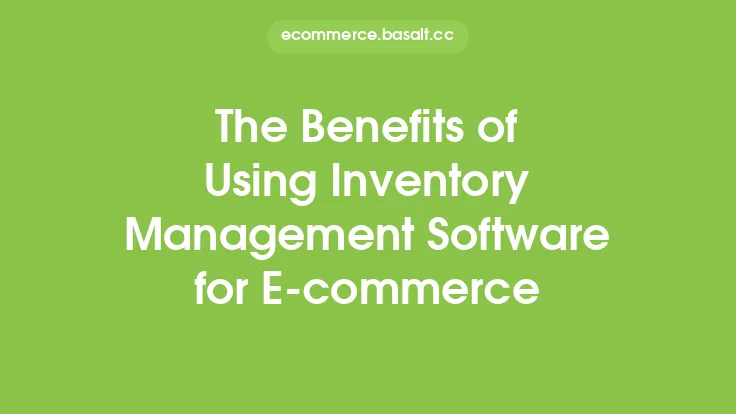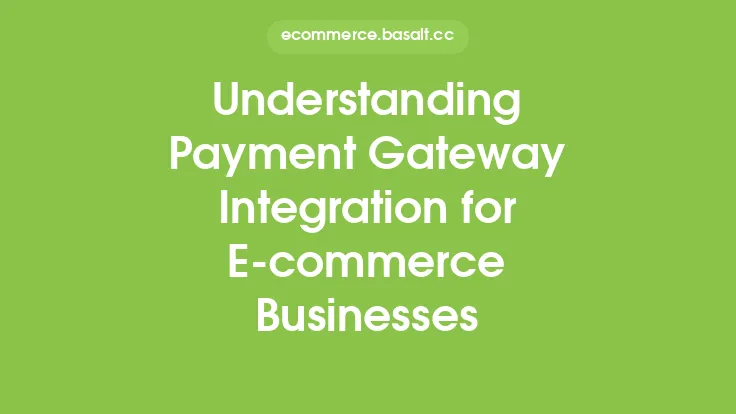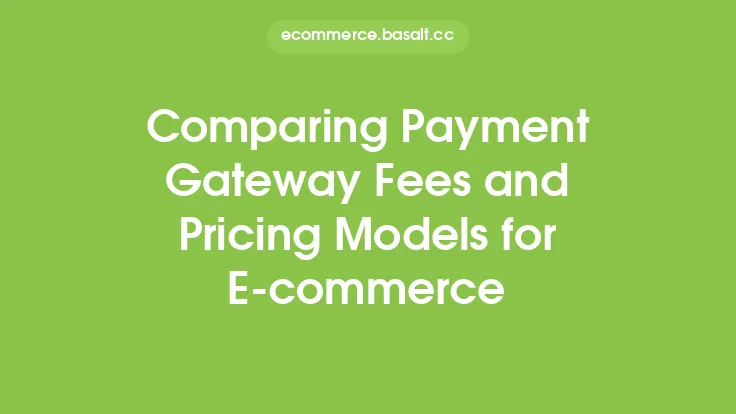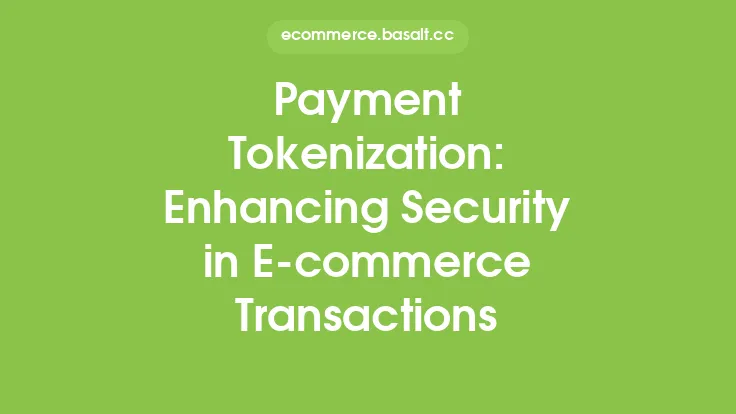In today's digital age, e-commerce has become an integral part of the way we shop and conduct business. With the rise of online transactions, the need for secure payment processing has never been more critical. A secure payment gateway is a vital component of any e-commerce platform, as it enables businesses to process transactions safely and efficiently. In this article, we will delve into the benefits of using a secure payment gateway for e-commerce transactions, highlighting the importance of protecting sensitive customer information and preventing fraudulent activities.
What is a Secure Payment Gateway?
A secure payment gateway is a system that facilitates the transfer of payment information between a customer's browser and a merchant's server. It acts as a bridge between the customer's payment method, such as a credit card or bank account, and the merchant's bank account. A secure payment gateway uses advanced encryption techniques, such as SSL/TLS, to protect sensitive payment information from interception and unauthorized access. This ensures that customer data is transmitted securely and reduces the risk of data breaches and cyber attacks.
Benefits of Using a Secure Payment Gateway
Using a secure payment gateway offers numerous benefits for e-commerce businesses. Some of the most significant advantages include:
- Enhanced Security: A secure payment gateway protects sensitive customer information, such as credit card numbers and expiration dates, from unauthorized access. This reduces the risk of data breaches and cyber attacks, which can damage a business's reputation and result in significant financial losses.
- Compliance with Industry Standards: A secure payment gateway ensures compliance with industry standards, such as PCI-DSS, which is a set of security protocols designed to protect sensitive payment information. Compliance with these standards is essential for maintaining customer trust and avoiding costly fines and penalties.
- Increased Customer Trust: A secure payment gateway helps to establish trust with customers, who are more likely to make a purchase from a website that prioritizes their security and protection. This can lead to increased sales and revenue, as well as improved customer loyalty and retention.
- Reduced Risk of Chargebacks: A secure payment gateway can help to reduce the risk of chargebacks, which occur when a customer disputes a transaction. By verifying the customer's identity and ensuring that they have authorized the transaction, a secure payment gateway can help to prevent fraudulent activities and reduce the risk of chargebacks.
- Improved Transaction Efficiency: A secure payment gateway can help to streamline the payment process, making it faster and more efficient. This can lead to improved customer satisfaction and reduced cart abandonment rates.
Key Features of a Secure Payment Gateway
A secure payment gateway should have several key features, including:
- Advanced Encryption: A secure payment gateway should use advanced encryption techniques, such as SSL/TLS, to protect sensitive payment information.
- Tokenization: Tokenization replaces sensitive payment information with a unique token, which can be used to process transactions without exposing the underlying payment data.
- Two-Factor Authentication: Two-factor authentication requires customers to provide additional verification, such as a password or fingerprint, to complete a transaction.
- Real-Time Transaction Monitoring: Real-time transaction monitoring enables merchants to detect and prevent suspicious activity, reducing the risk of fraudulent transactions.
- Compliance with Industry Standards: A secure payment gateway should comply with industry standards, such as PCI-DSS, to ensure the security and integrity of sensitive payment information.
Best Practices for Implementing a Secure Payment Gateway
To ensure the effective implementation of a secure payment gateway, e-commerce businesses should follow best practices, including:
- Conducting Regular Security Audits: Regular security audits can help to identify vulnerabilities and ensure that the payment gateway is compliant with industry standards.
- Implementing Strong Access Controls: Strong access controls, such as two-factor authentication, can help to prevent unauthorized access to sensitive payment information.
- Providing Clear and Concise Payment Information: Clear and concise payment information can help to reduce customer confusion and improve the overall payment experience.
- Offering Multiple Payment Options: Offering multiple payment options can help to improve customer satisfaction and increase sales.
- Monitoring Transaction Activity: Monitoring transaction activity can help to detect and prevent suspicious activity, reducing the risk of fraudulent transactions.
Conclusion
In conclusion, a secure payment gateway is a critical component of any e-commerce platform, as it enables businesses to process transactions safely and efficiently. By understanding the benefits and key features of a secure payment gateway, e-commerce businesses can ensure the security and integrity of sensitive customer information, reduce the risk of fraudulent activities, and improve the overall payment experience. By following best practices and implementing a secure payment gateway, e-commerce businesses can establish trust with their customers, increase sales and revenue, and maintain a competitive edge in the market.
